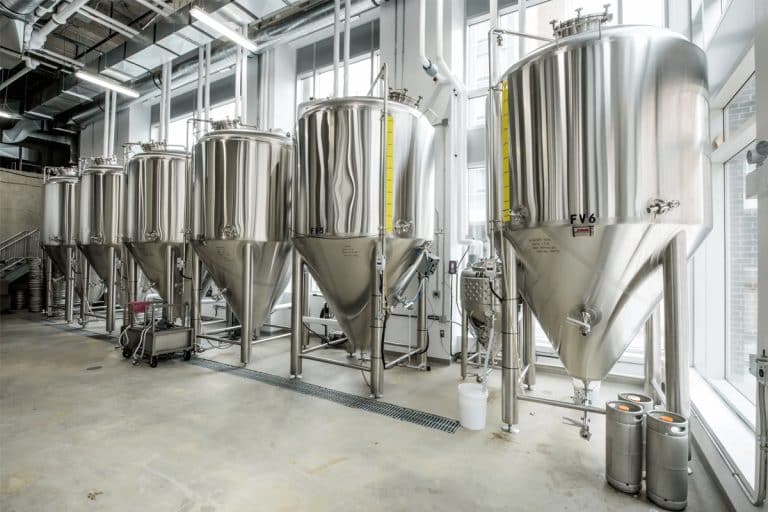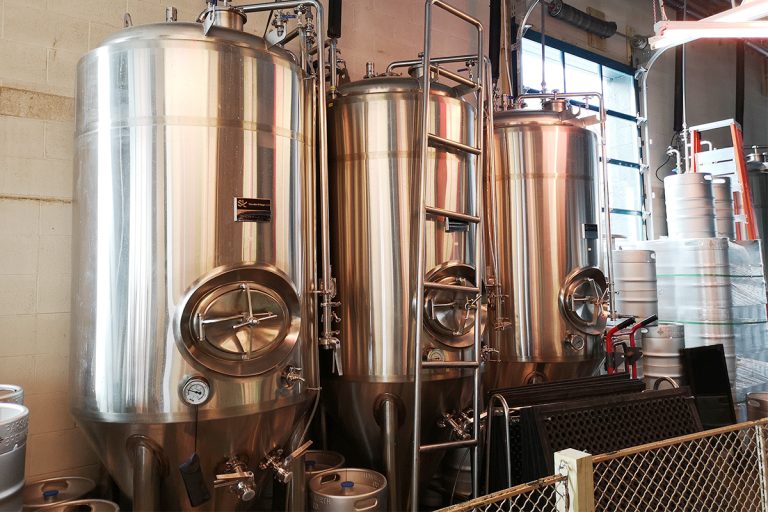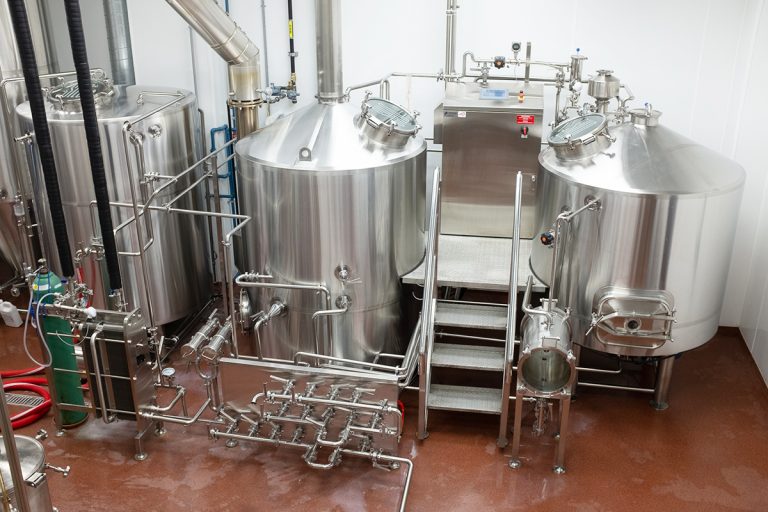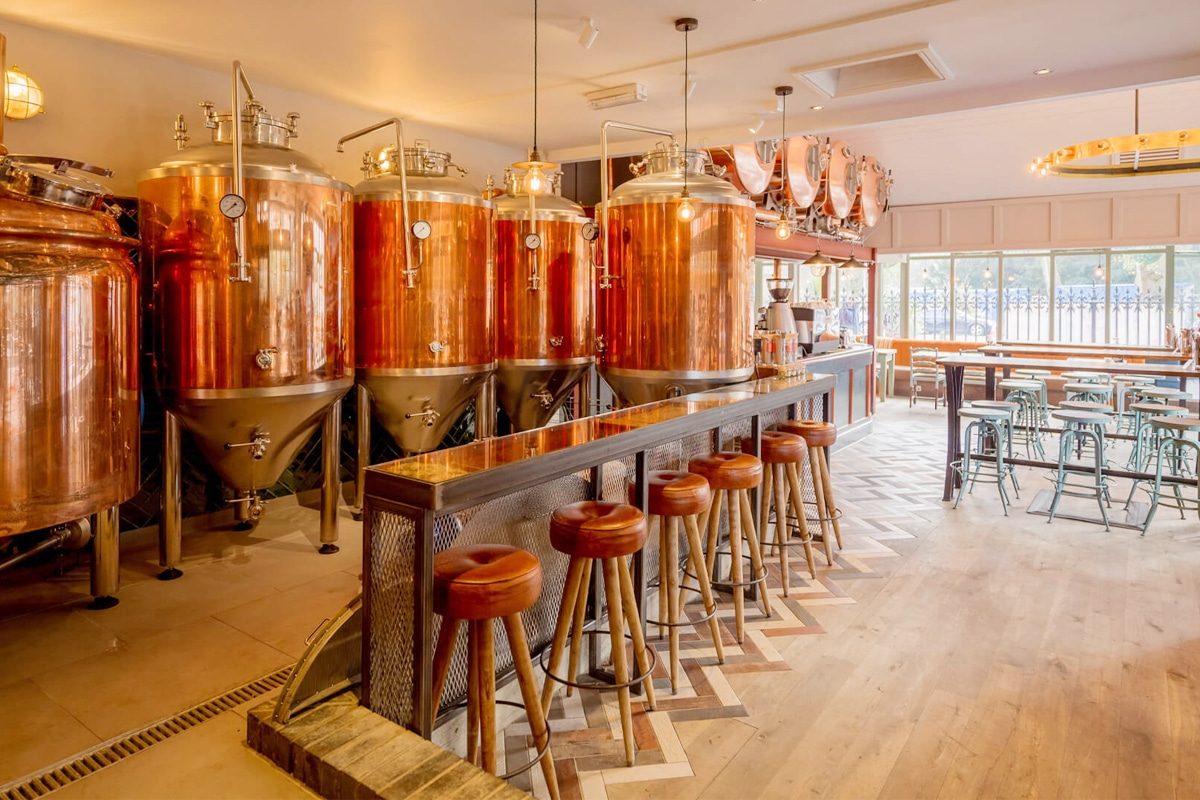
What Is The Difference Between Various Types Of Breweries?
Breweries are not just places where beer is made, they are vibrant centers of culture, innovation, and community. However, not all businesses are created equal when it comes to brewing. From cozy small breweries tucked away in quaint neighborhoods to large breweries with global reach, the beer brewing landscape is incredibly diverse, offering a wide range of experiences for beer lovers.
In this article, we’ll embark on a journey to explore the differences between different types of breweries, delving into their size, brewing methods, business models, and the experiences they offer beer lovers. Whether you’re a seasoned craft beer drinker or a curious newbie to the brewing world, understanding the nuances of different brewery types will deepen your appreciation for the rich flavors, traditions, and stories that define the beer landscape.
Complete Guide
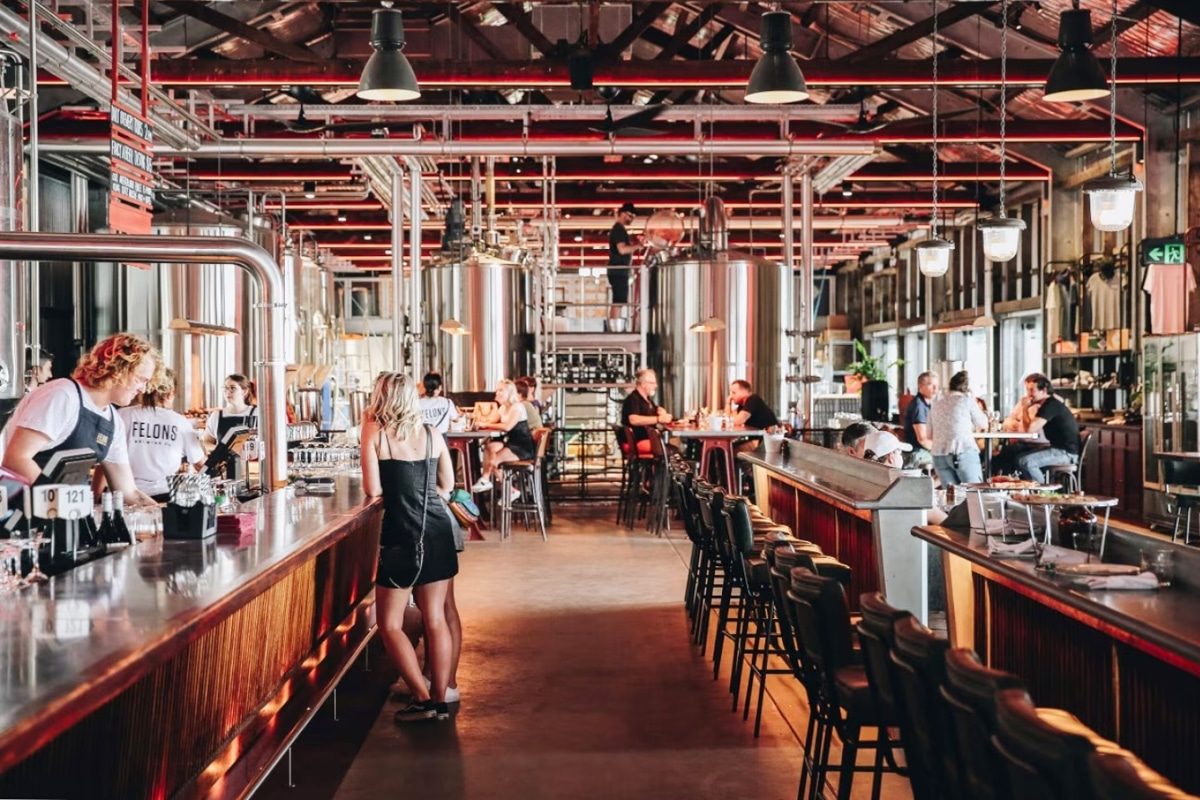
Brewpubs
Brewpubs represent a unique fusion of brewery and pub, offering patrons a one-of-a-kind experience that combines the art of brewing with the convivial atmosphere of a bar or restaurant. Unlike traditional breweries that focus solely on beer production, brewpubs provide a full-service dining or drinking establishment where customers can enjoy freshly brewed beer alongside a menu of food offerings. This integration of brewing and hospitality creates a dynamic environment where beer enthusiasts can immerse themselves in the brewing process while enjoying a delicious meal or socializing with friends.
Main Features
- Brewing Onsite: Many brewpubs boast onsite brewing facilities, allowing customers to witness the brewing process firsthand while enjoying their meal or drink. This transparency fosters a deeper connection between patrons and the beers they consume, enriching the overall brewery experience.
- Diverse Beer Selection: Brewpubs typically offer a wide range of beer styles, catering to a variety of tastes and preferences. From crisp lagers to robust stouts and everything in between, brewpubs strive to provide a diverse selection of brews to satisfy discerning beer enthusiasts.
- Full-Service Dining: In addition to their brewing operations, brewpubs function as full-service restaurants or bars, providing patrons with a comprehensive dining experience. Whether it’s hearty pub fare, gourmet cuisine, or casual snacks, brewpubs offer a menu that complements their beer offerings, ensuring a satisfying culinary experience for all.
- Community Gathering Spaces: Brewpubs often serve as community gathering spaces, where locals and visitors alike come together to socialize, relax, and enjoy good food and beer in a welcoming environment. The convivial atmosphere of brewpubs fosters camaraderie and connection among patrons, making them popular destinations for social events, celebrations, and gatherings.
- Educational Opportunities: Many brewpubs host educational events and brewery tours, providing patrons with insights into the brewing process, beer styles, and tasting techniques. These educational initiatives enhance the brewery experience, empowering patrons to deepen their understanding and appreciation of craft beer.
Brewpubs offers a unique and immersive brewery experience that seamlessly integrates brewing with hospitality. With their onsite brewing facilities, diverse beer selection, full-service dining options, and community-oriented atmosphere, brewpubs stand as vibrant hubs of beer culture and camaraderie, inviting patrons to indulge in the pleasures of good food, good beer, and good company.
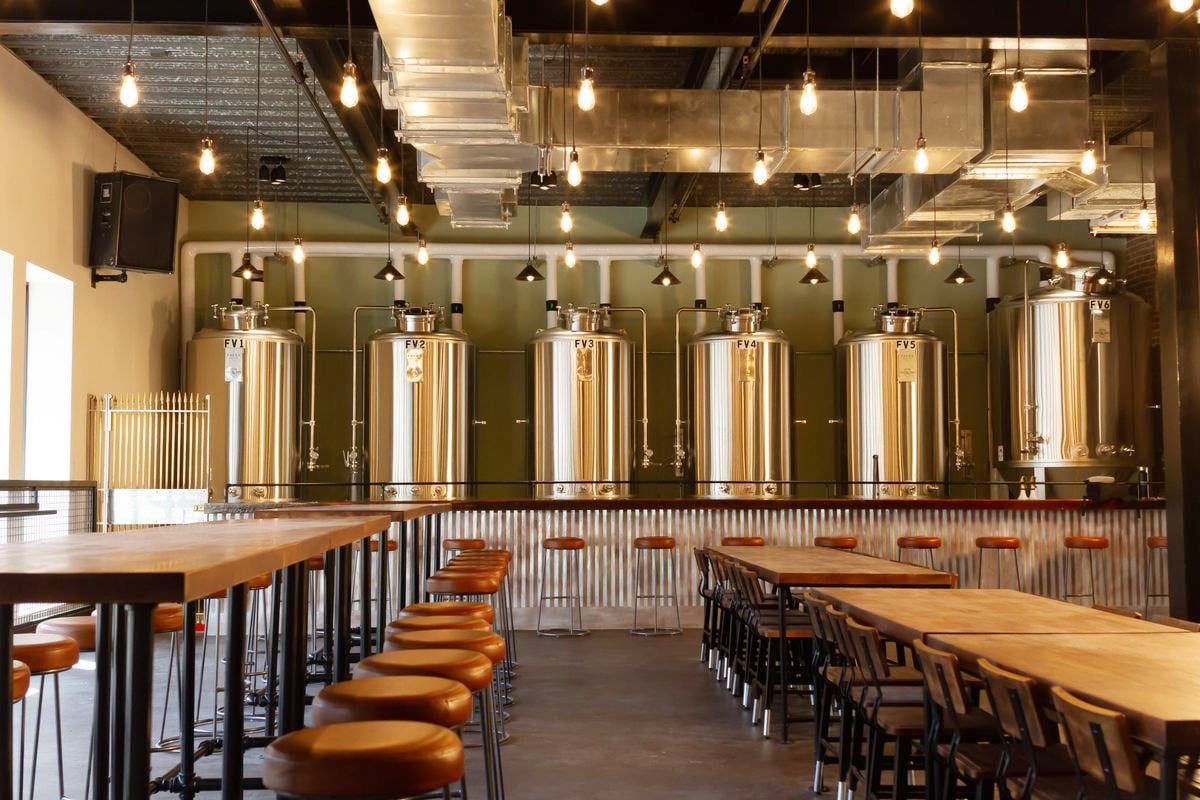
Nano Breweries
The nano-brewery represents the epitome of small-scale brewing, where passion and craftsmanship converge to produce limited quantities of artisanal beer. These diminutive establishments operate on a minuscule scale, typically brewing batches of beer that are even smaller than those produced by microbreweries. While nano breweries may lack the production capacity and distribution reach of larger breweries, they compensate with an unwavering commitment to quality, innovation, and creativity.
Main Features
- Ultra-Small Scale Production: Nano breweries produce beer on an ultra-small scale, often brewing batches that range from a few gallons to a few barrels at a time. This limited production capacity allows nano brewers to maintain meticulous control over the brewing process, ensuring that each batch receives the utmost attention and care.
- Handcrafted Brews: At the heart of nano breweries is a dedication to handcrafted brewing methods and small-batch production. Nano brewers often take a hands-on approach to brewing, personally overseeing every step of the process from recipe formulation to packaging. This artisanal approach allows nano breweries to create unique and distinctive beers that stand out in a crowded market.
- Local Focus: Nano breweries typically have a strong emphasis on local sourcing and community engagement. Many nano brewers prioritize using locally sourced ingredients, such as hops, grains, and fruits, to create beers that reflect the unique terroir of their region. Additionally, nano breweries often foster close connections with their local communities, hosting events, collaborating with nearby businesses, and supporting charitable initiatives.
- Direct-to-Consumer Sales: Due to their small size and limited production capacity, nano breweries often focus on direct-to-consumer sales, selling their beers directly to patrons through taprooms, tasting rooms, or onsite retail outlets. This direct sales model allows nano brewers to forge personal connections with their customers, share their passion for brewing, and receive immediate feedback on their beers.
- Experimental Flair: Nano breweries are known for their willingness to push the boundaries of beer styles and flavors, experimenting with unconventional ingredients, brewing techniques, and flavor combinations. These breweries serve as hotbeds of innovation, constantly striving to surprise and delight beer enthusiasts with new and exciting brews.
- Intimate Atmosphere: Due to their small size, nano breweries often offer a cozy and intimate atmosphere, where patrons can interact directly with the brewers and gain insight into the brewing process. This close-knit environment fosters a sense of camaraderie and allows beer enthusiasts to deepen their appreciation for the craft of brewing.
Nano breweries are taking their place in the beer industry, championing quality, creativity, and community on a small scale. With its ultra-small capacity, handcrafted brews, local focus, direct-to-consumer sales model, experimental flair, and intimate atmosphere, Nanobrewery embodies the essence of craft beer and invites customers to embark on a journey of discovery and exploration of the world of beer.
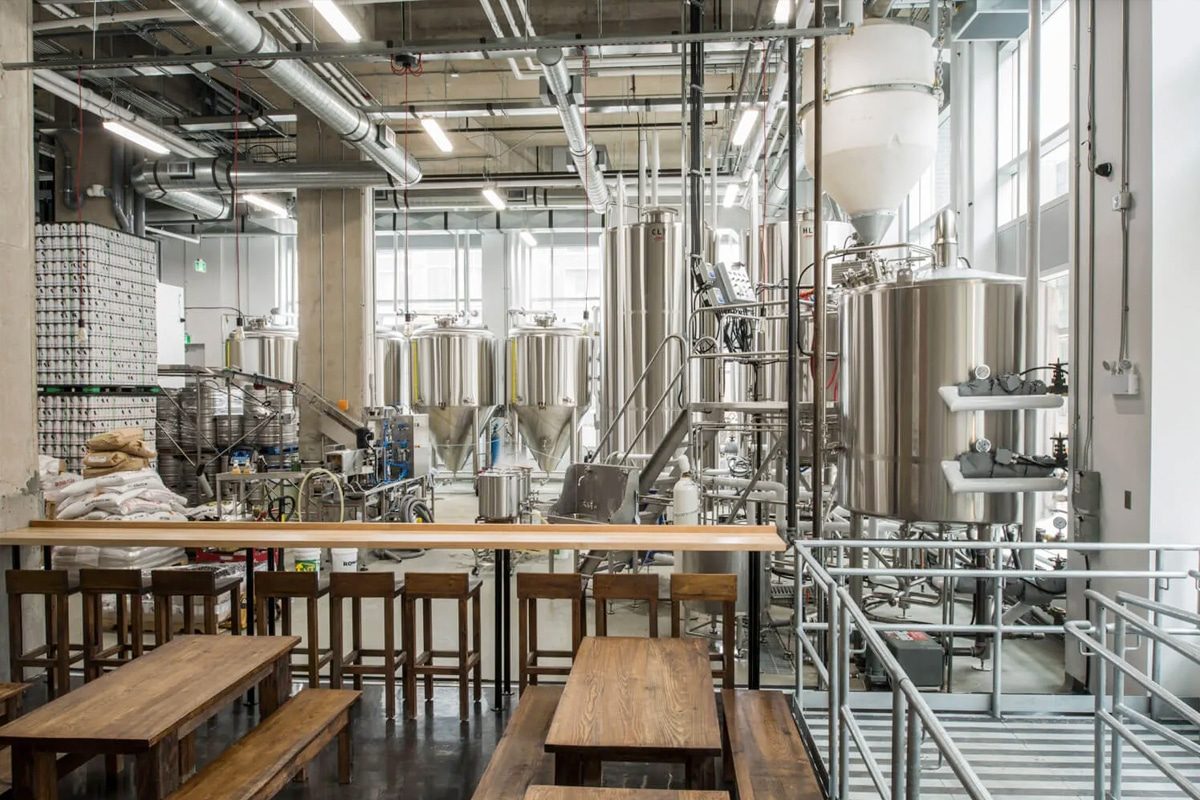
Micro Breweries
Microbreweries epitomize the essence of craft beer culture, focusing on producing beer in limited quantities with an unwavering commitment to quality, creativity, and innovation. These small-scale operations stand as beacons of artisanal craftsmanship, catering to a discerning audience of beer enthusiasts who value authenticity and flavor diversity.
Main Features
- Small-Scale Production: Microbreweries typically produce fewer than 15,000 barrels of beer per year, distinguishing them from larger industrial breweries. This limited production capacity allows microbreweries to maintain a high level of quality control and attention to detail, ensuring that each batch of beer meets its exacting standards.
- Emphasis on Quality: Quality is paramount in the world of microbrewing, with brewers prioritizing the use of high-quality ingredients, meticulous brewing techniques, and rigorous quality assurance protocols. Microbreweries are known for their dedication to producing consistently excellent beer, earning them a reputation for excellence among beer enthusiasts.
- Creativity and Innovation: Microbreweries are hotbeds of creativity and innovation, constantly pushing the boundaries of beer styles and flavor profiles. Brewers at microbreweries are not afraid to experiment with unique ingredients, brewing techniques, and flavor combinations, resulting in a diverse array of brews that cater to a wide range of tastes and preferences.
- Local and Community Focus: Many microbreweries have a strong emphasis on serving their local communities, sourcing ingredients from nearby farms and suppliers, and actively participating in community events and initiatives. This local focus fosters a sense of connection and pride among patrons, who appreciate the brewery’s commitment to supporting the local economy and community.
- Taproom Experience: Microbreweries often feature onsite taprooms where patrons can sample a rotating selection of freshly brewed beers, directly from the source. These taprooms provide a unique opportunity for beer enthusiasts to engage with the brewers, learn about the brewing process, and enjoy a pint in a relaxed and welcoming atmosphere.
Microbreweries represent the epitome of craftsmanship and creativity in the world of beer, producing high-quality brews in small batches with a relentless focus on quality, innovation, and community engagement. With their dedication to excellence, commitment to creativity, and passion for beer, microbreweries continue to shape and elevate the craft beer landscape, delighting beer enthusiasts with their distinctive brews and immersive brewery experiences.
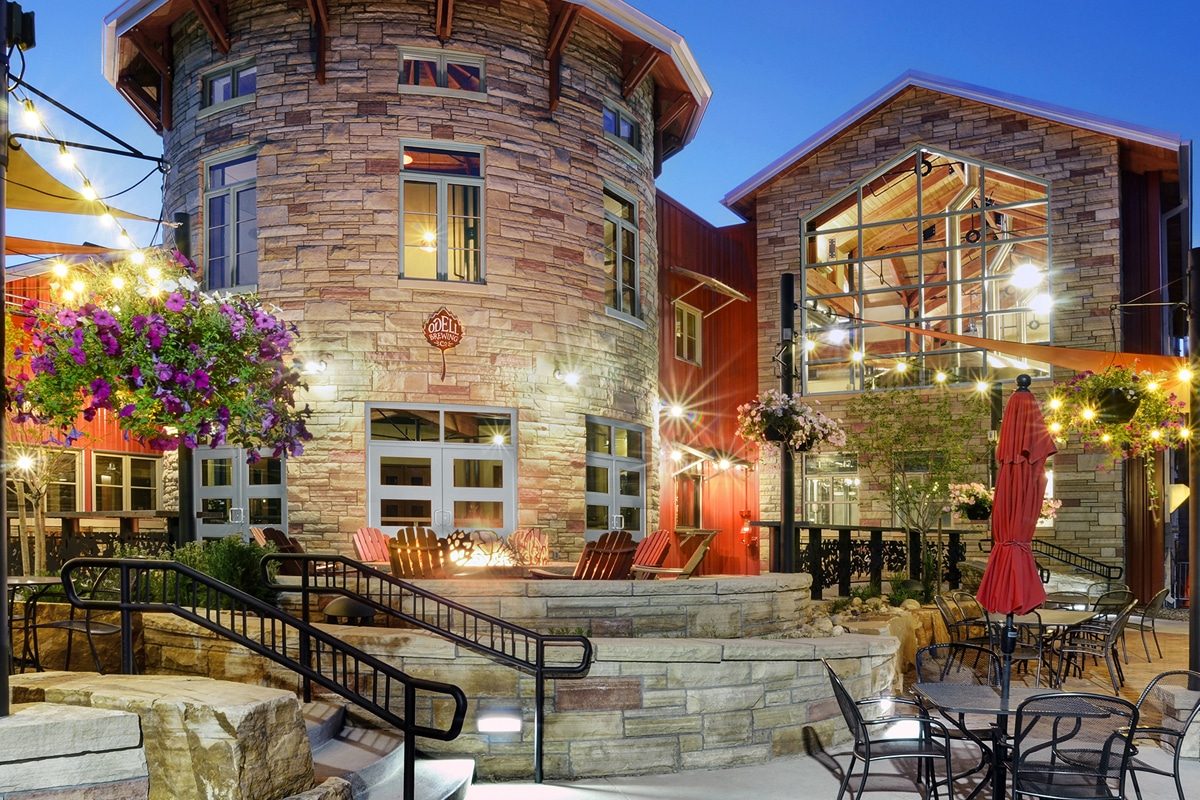
Regional Breweries
Regional breweries occupy a middle ground in the brewing landscape, bridging the gap between small-scale microbreweries and large-scale macrobreweries. These breweries operate on a larger scale compared to microbreweries, producing between 15,000 to 6 million barrels of beer annually. While they may not have the global reach of macro breweries, regional breweries are known for their wide distribution networks and commitment to brewing beers that appeal to a broad consumer base.
Main Features
- Moderate Production Capacity: Regional breweries produce beer in quantities larger than microbreweries but smaller than macro breweries, striking a balance between scale and craftsmanship. This moderate production capacity allows regional breweries to maintain consistency and quality while still catering to a wider audience.
- Focus on Consistency: Consistency is a hallmark of regional breweries, with brewers employing rigorous quality control measures to ensure that each batch of beer meets the brewery’s exacting standards. Whether it’s a flagship beer or a seasonal release, patrons can expect a consistent and reliable drinking experience from regional breweries.
- Wide Distribution Network: Regional breweries have broader distribution networks compared to microbreweries, allowing their beers to reach consumers across multiple states or regions. This wider reach enables regional breweries to introduce their beers to a larger audience while still maintaining a connection to their local roots.
- Brand Recognition: Many regional breweries have achieved a level of brand recognition and loyalty among consumers, with iconic flagship beers that serve as cornerstones of their portfolio. These breweries often play a central role in shaping beer culture within their regions, becoming synonymous with the flavors and traditions of their area.
- Portfolio of Flagship Beers: Regional breweries often have a portfolio of flagship beers that serve as the backbone of their brand. These flagship beers are beloved by consumers and represent the brewery’s commitment to brewing high-quality, consistent beers that stand the test of time. While regional breweries may also experiment with new styles and flavors, their flagship beers remain a cornerstone of their identity.
- Community Engagement: Despite their larger scale, many regional breweries maintain strong ties to their local communities, supporting charitable initiatives, sponsoring events, and participating in community outreach programs. This commitment to community engagement fosters a sense of loyalty and support among patrons, who appreciate the brewery’s contributions to their region.
Regional breweries strike a balance between scale and craftsmanship, producing beers that are consistent, widely distributed, and rooted in their local communities. With their moderate production capacity, focus on consistency, wide distribution network, brand recognition, portfolio of flagship beers, and commitment to community engagement, regional breweries play a vital role in shaping beer culture within their respective regions and beyond.
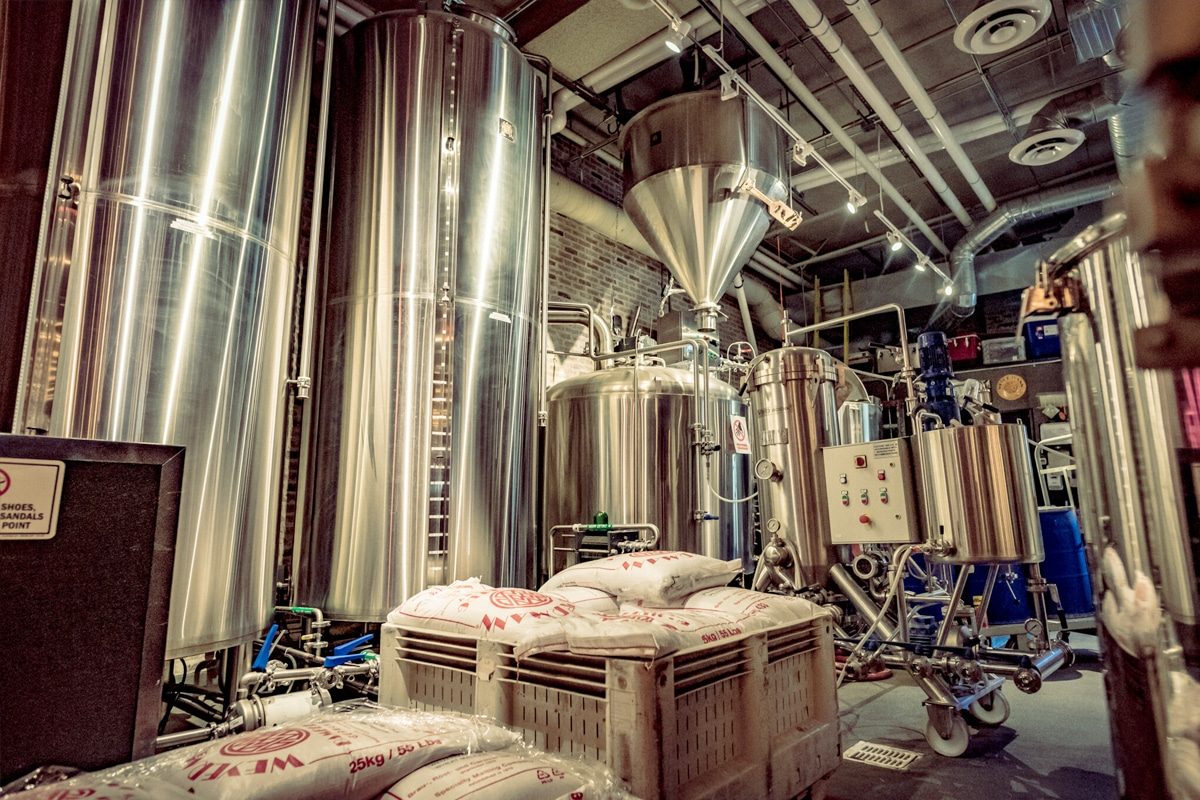
Macro Breweries
Macro breweries represent the pinnacle of industrial beer production, operating on a massive scale and dominating the market with their ubiquitous brands. These breweries produce millions of barrels of beer annually and have a vast distribution network that spans national and international borders. While they may lack the artisanal charm of smaller breweries, macro breweries play a significant role in shaping consumer preferences and driving trends within the beer industry.
Main Features
- Massive Production Capacity: Macro breweries are capable of producing millions of barrels of beer each year, thanks to their state-of-the-art brewing facilities and efficient production processes. This massive production capacity allows macro breweries to meet the demands of a global market and supply their flagship brands to consumers around the world.
- Global Reach: Macro breweries have a far-reaching distribution network that enables their beers to be sold in grocery stores, bars, and restaurants across continents. Whether it’s a light lager or a popular ale, consumers can find macro brewery beers on shelves and taps in virtually every corner of the globe, making them some of the most recognizable brands in the world.
- Brand Recognition: Macro breweries are synonymous with brand recognition, with iconic logos and slogans that are instantly recognizable to consumers. These breweries invest heavily in marketing and advertising to promote their brands and maintain their dominant position in the market, leveraging their vast resources to reach consumers through television, print, and digital media channels.
- Standardization and Consistency: One of the hallmarks of macro breweries is their emphasis on standardization and consistency. These breweries employ strict quality control measures and standardized brewing processes to ensure that each batch of beer meets uniform taste and quality standards. While this focus on consistency may result in beers that lack the complexity and character of craft brews, it provides consumers with a reliable and predictable drinking experience.
- Economies of Scale: Macro breweries benefit from economies of scale, allowing them to produce beer at lower costs compared to smaller breweries. By leveraging their size and efficiency, macro breweries can achieve cost savings in areas such as ingredient sourcing, production, and distribution, ultimately offering consumers competitive prices and widespread availability.
Macro breweries represent the apex of industrial beer production, producing vast quantities of beer with global reach and brand recognition. With their massive production capacity, global distribution network, emphasis on standardization and consistency, and economies of scale, macro breweries continue to shape the beer industry and influence consumer preferences on a global scale.
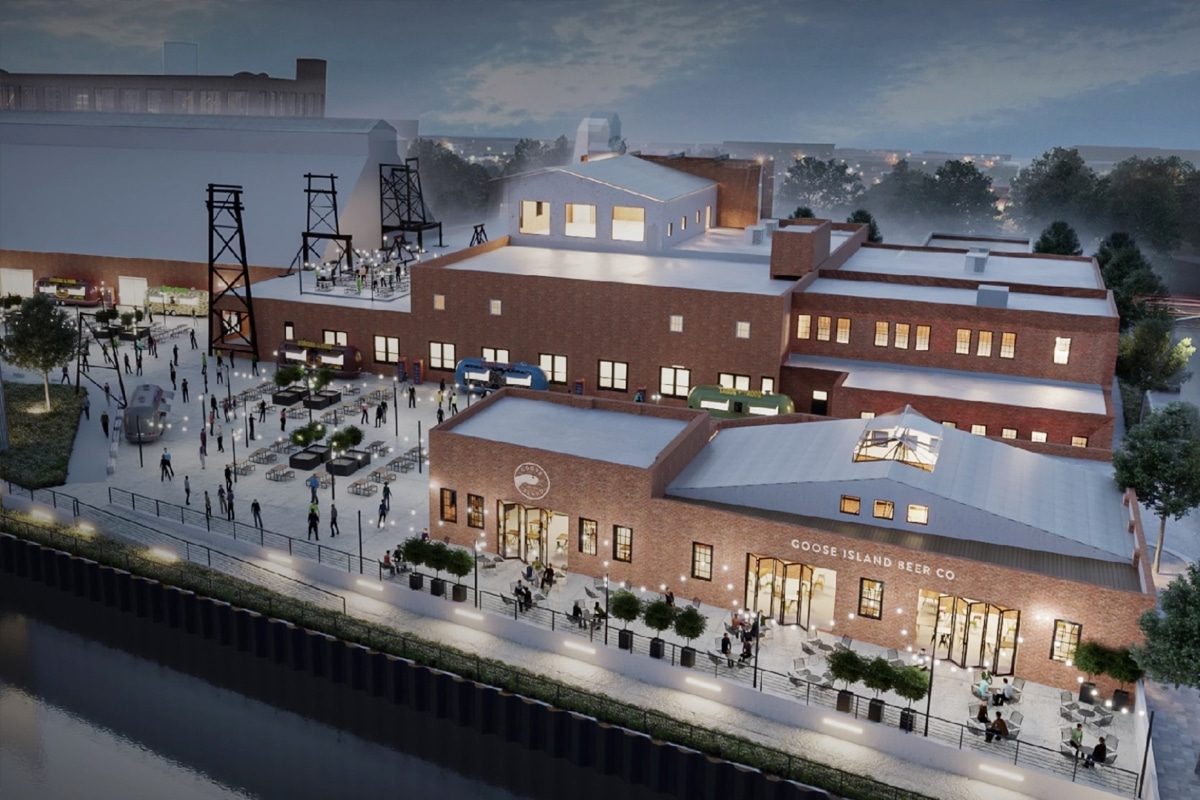
Craft Breweries
Craft breweries are the beating heart of the craft beer revolution, embodying a dedication to quality, innovation, and community that sets them apart in the brewing landscape. These small-scale operations prioritize craftsmanship over mass production, focusing on creating unique and flavorful beers that reflect the artistry and passion of their brewers. Craft breweries have carved out a niche in the market, appealing to beer enthusiasts who crave variety, authenticity, and a deeper connection to the brewing process.
Main Features
- Independence: Craft breweries are typically independently owned and operated, distinguishing them from larger corporate breweries. This independence allows craft brewers to maintain creative control over their brewing process, ingredients, and brand identity, fostering a spirit of innovation and authenticity.
- Quality Over Quantity: Craft breweries prioritize quality over quantity, producing beer in smaller batches to ensure meticulous attention to detail and flavor consistency. Craft brewers often use high-quality ingredients sourced locally whenever possible, resulting in beers that showcase the unique terroir and character of their region.
- Innovation and Creativity: Craft breweries are known for their willingness to experiment with new beer styles, flavors, and brewing techniques. From barrel-aging to wild fermentation, craft brewers are constantly pushing the boundaries of what beer can be, delighting consumers with innovative and unexpected brews that challenge the status quo.
- Community Engagement: Craft breweries play an integral role in their local communities, serving as gathering places where patrons can connect with brewers, share their passion for beer, and participate in tasting events and brewery tours. This sense of community engagement fosters a deep sense of loyalty and support among customers, who appreciate the brewery’s commitment to their neighborhood.
- Sustainability: Many craft breweries prioritize sustainability and environmental stewardship, implementing eco-friendly practices such as water conservation, energy efficiency, and waste reduction. By minimizing their environmental impact, craft breweries strive to create a more sustainable future for the brewing industry and the planet as a whole.
Craft breweries have emerged as leaders in the beer industry, championing quality, innovation, and community in every pint they pour. With their independence, focus on quality and innovation, strong ties to their local communities, and commitment to sustainability, craft breweries continue to shape the beer landscape and inspire beer enthusiasts around the world.
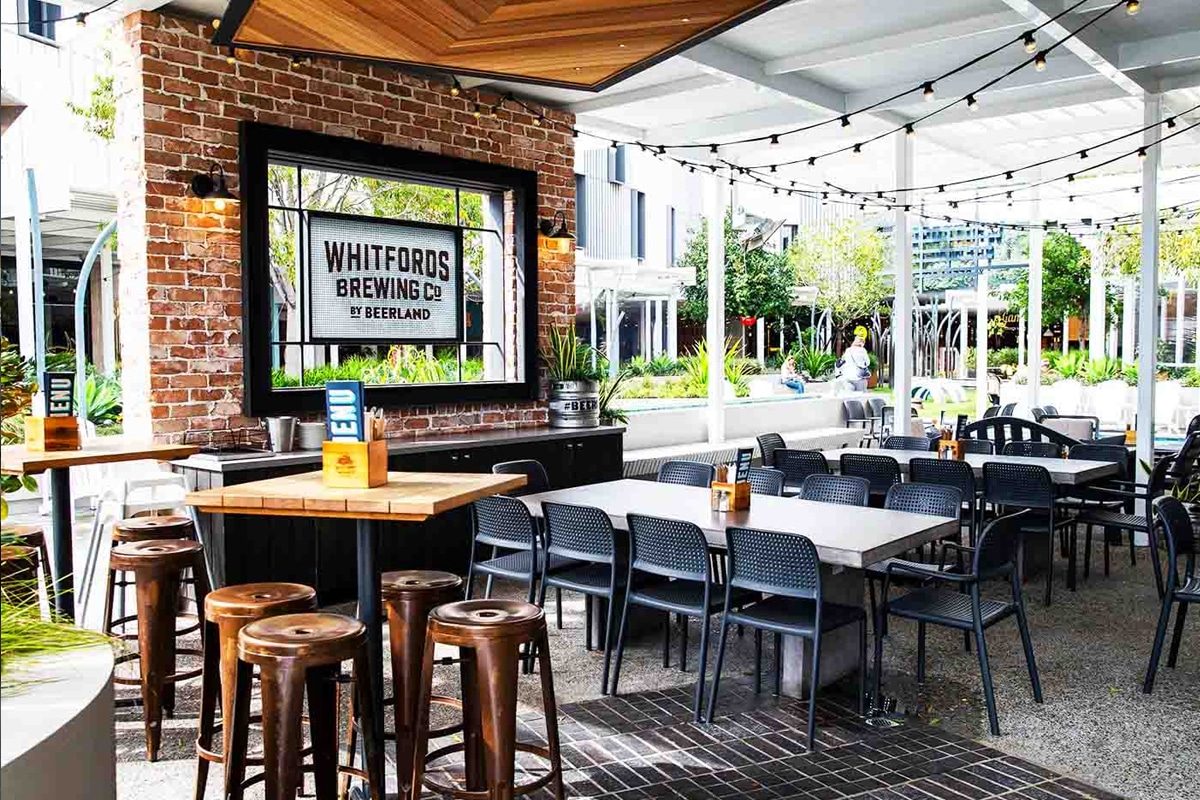
Summary
The brewing landscape is rich and diverse, encompassing a variety of brewery types, each with its unique characteristics and offerings. Microbreweries, craft breweries, brewpubs, regional breweries, and macro breweries all play distinct roles in shaping the beer industry, catering to a wide range of consumer preferences and tastes. Microbreweries and craft breweries prioritize quality, innovation, and community engagement, crafting small-batch beers with a focus on creativity and authenticity. Brewpubs offers a hybrid experience, combining brewing with hospitality to create immersive dining and drinking experiences. Regional breweries bridge the gap between small-scale craft breweries and large-scale macro breweries, producing beer with a focus on consistency and wider distribution. Finally, macro breweries dominate the market with their massive production capacity, global reach, and brand recognition. Together, these various types of breweries form a dynamic and vibrant ecosystem that celebrates the artistry, tradition, and innovation of brewing.
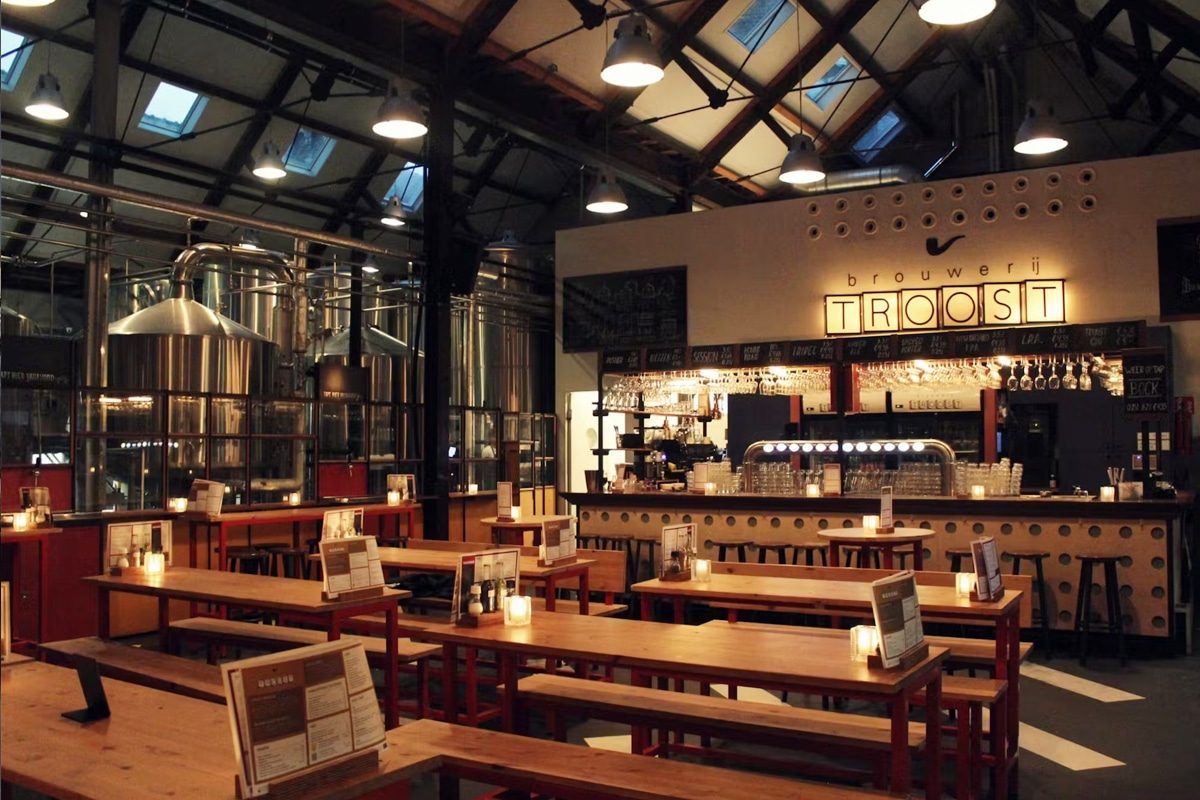
Get A Turnkey Brewery Solution
For aspiring brewers looking to embark on their journey in the world of brewing, partnering with a professional brewery solution provider like ZYB Craft can be a game-changer. ZYB Craft offers turnkey brewery solutions that streamline the process of setting up and operating a brewery, regardless of its size or scale. With ZYB Craft’s expertise and support, brewers can access a comprehensive range of services and equipment tailored to their specific needs and goals.
From conceptualizing brewery designs and layouts to sourcing high-quality brewery equipment and implementing efficient brewing processes, ZYB Craft guides brewers every step of the way, ensuring a seamless and successful brewery launch. Additionally, ZYB Craft provides ongoing support and maintenance services to help breweries optimize their operations and achieve long-term success in a competitive market.
By partnering with ZYB Craft, brewers can focus on their passion for brewing while benefiting from professional guidance, industry-leading equipment, and turnkey solutions that set their brewery up for success from day one.

